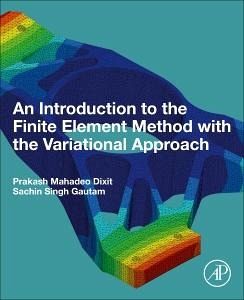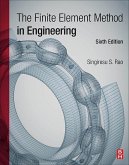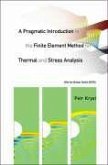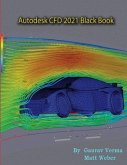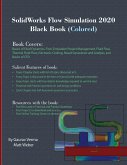An Introduction to the Finite Element Method with the Variational Approach offers a comprehensive solution to the gaps often found in introductory texts on the Finite Element Method (FEM). It provides a thorough introduction to the fundamental principles of linear and time-independent FEM within the variational framework. The book meticulously covers the derivation of 1-D FEM equations based on variational functionals, encompassing both linear and higher-order elements, and shape functions driven by convergence criteria. Furthermore, it explores 1-D numerical integration, outlines coding procedures, and provides insights into handling material nonlinearity and time-dependent scenarios. Expanding into 2-D problems, the book offers derivations of 2-D FEM equations tailored to diverse engineering disciplines, including Steady-State Heat Conduction, Solid Mechanics (covering torsion, plane strain/axisymmetric cases, and the bending, stability, and vibrations of thin plates), as well as Fluid Mechanics (addressing incompressible inviscid and viscous fluids). It includes detailed discussions on element continuity, numerical integration techniques, and even includes 2-D codes for selected problems. The book concludes by delving into recent advancements in FEM, with a specific focus on applications in machine learning and isogeometric analysis. This resource is indispensable for students and practitioners seeking a deeper and more conceptual understanding of FEM, providing a robust foundation for their endeavours.

